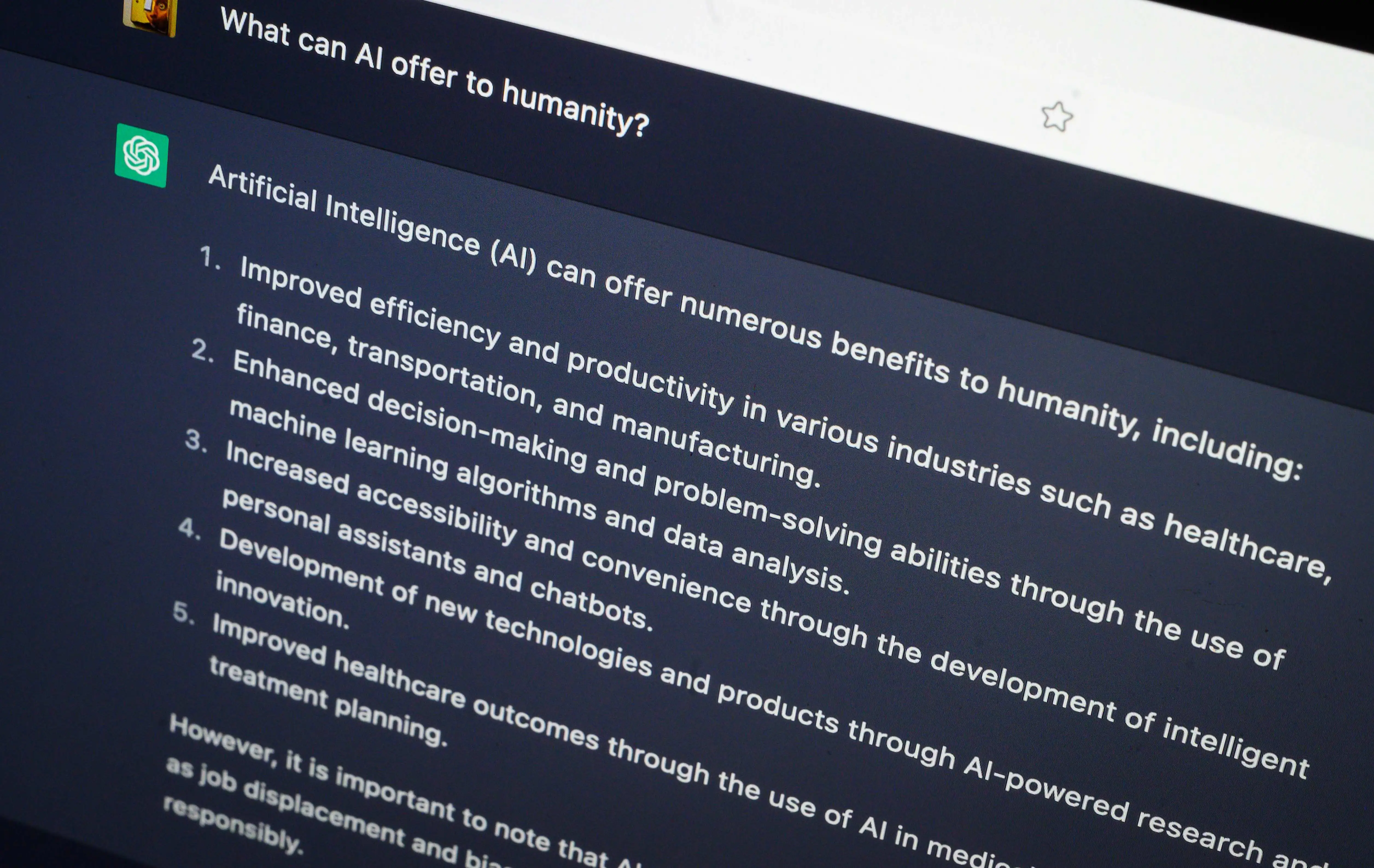
While ChatGPT can help, Australian students must remember to think for themselves

As we countdown to Year 12 English exams – it’s worth remembering that in ATAR written tests, no one can use their AI crutch
Published 15 September 2025
2025’s Year 12 students are the first group in history to have gone through their final years of high school with widespread access to Generative AI models like ChatGPT.
For better and for worse, students have always had access to model writing and external tutors to help them with assessments.

But now, with the push of a few buttons, whole essays can be churned out and submitted in a matter of minutes.
It makes the question over whether to scrap end-of-year exams look further away than it ever did.
When it comes to Australian Tertiary Admission Rank (ATAR) performance, ChatGPT’s report card isn’t in yet. Is ChatGPT teaching students to think better, or is it replacing their thinking?
A meta-analysis of research to date in the field found that successful use of AI in education, while full of potential, needs careful scrutiny in its implementation.
New South Wales and South Australia are currently trialling their own AI software which aims to help students in their study rather than providing them with the answer.

But, if students believe they can get quicker and easier answers from freely available Large Language Models (LLMs) – the temptation may be difficult to resist.
For classroom teachers, there are two key concerns.
The first is how to verify student work, but secondly, how to promote the value of still thinking and writing for themselves when even some university professors are having AI do their work for them.
In my research, I have found that it can be difficult for students and teachers to see themselves as writers.
The French philosopher Pierre Bourdieu helps us understand that this is because being a writer is a status symbol. If Shakespeare is a writer, how can you also be a writer?
AI may be throwing a further challenge at student-writers: if they give in to the temptation to use AI to do their thinking and writing for them, they miss the chance to practise the skill of being a creator and finding their own voice.

Or, as one viral TikToker rants: “What do you mean you use ChatGPT for everything? What happened to having a think?”
English, as the only mandated subject in the final years’ curriculum, owes its status to two long-held truths.
One: that the ability to read and write well is necessary for the economy. Two: that the study of literature provides a moralising education – that is, the difference between right and wrong.
In the age of Al, English carries a third heightened purpose: to teach students how to think critically, a skill now more important than ever.
The 1979 space-horror film Alien famously promised that in space, no one can hear you scream.
On 28 October, the VCE English exam kicks off the Year 12 written exam period. And in an exam hall, no one can use their AI crutch.

If you didn’t see the link between a horror film and Year 12 exams, you probably don’t have a 17 or 18-year-old in your life.
With all of this in mind, there are key ways students can prepare for their final English exam.
Understand what it means to be a writer
Writers mull over ideas, they take the time to think about and plan what they want to say. They develop strategies for when they get stuck.
This might include using AI to help them problem solve.
But they also draw on analogue strategies like mind mapping and free writing to push through writer’s block and help dispel the myth that something needs to be immediately perfect.

Rethink your study habits
If you’re not already studying to get yourself exam-literate, here’s how to do it.
Pick an essay question and spend five minutes planning a response with no notes. This is the time you’ll ideally spend in the exam.
Then go back to your notes (or AI, if you must) and plan the essay more fully. Were there quotes you couldn’t remember at the time? Or some sentence starters you want to be sure to use? or an idea that came to you upon further reflection?
At that point show it to your teacher and ask for feedback. Then write up the essay in 55 minutes, like you will in the exam.

Education
An alternative to ATAR
Make a study sheet
Stick it somewhere you will see every day. Handwrite it – the act of writing is a study skill in itself. Do not have the robot write it for you, especially if it involves quotes.
ChatGPT can’t read novels if they’re not freely available online. And that means it will make quotes up.
Practise breaking down the implications of essay questions
The 2024 English exam assessors’ report states that “students who can demonstrate an understanding of the implications of the topics will typically develop responses that achieve higher scores”.
So – if a question about Frankenstein by Mary Shelley asks if the monster is a ‘fiend’ or ‘virtuous’, be prepared to ask questions of the question.

Who gets to decide if a creation is good or bad? How do we judge it? Why does it matter? Why is it complicated?
No matter what you’re being asked to write, ask yourself: “why is this complicated?”
AI likes to wrap things into a nice little bow for us. Being human is messy. Assessors want to know that you know that.
Understand that your English teacher isn’t holding out on you if they don’t ‘give you the answer’. The skill you’re being assessed on is your ability to think through complexity.
Avoid memorising a pre-written essay
Memorising won’t answer the question, and assessors only reward writing that answers the question.

Business & Economics
Why ATAR averages are poor measures of school performance
Instead, memorise nice phrases, academic verbs and little insights that you could rework into any essay. Maybe some of these were AI-generated and that’s OK.
The skill is whether you can make them work for you. So, practise using them yourself.
A final word from the wise
Get off your device occasionally and go for a walk. The robots can’t do this one for you. Your brain will thank you.
